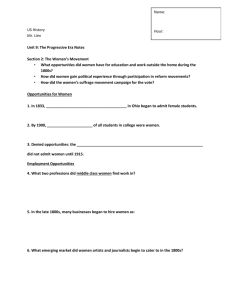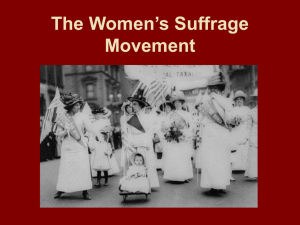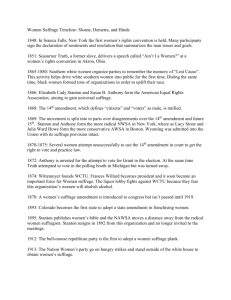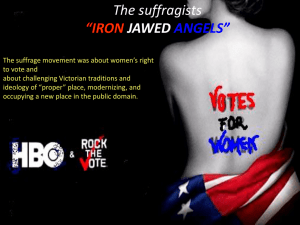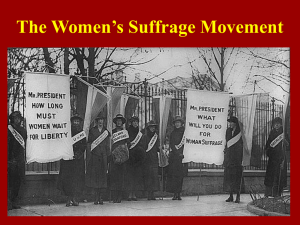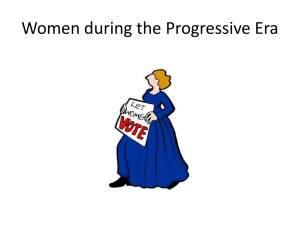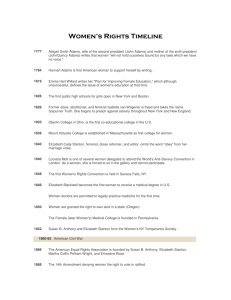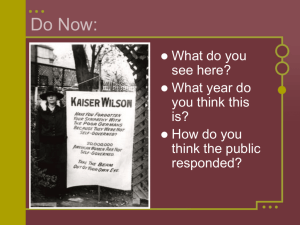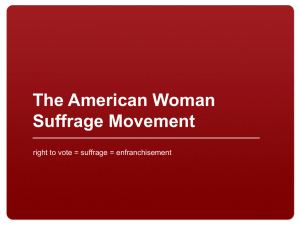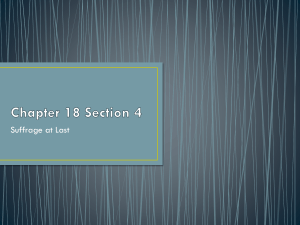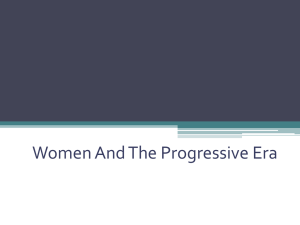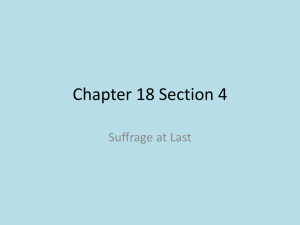Women During the Progressive Era
advertisement
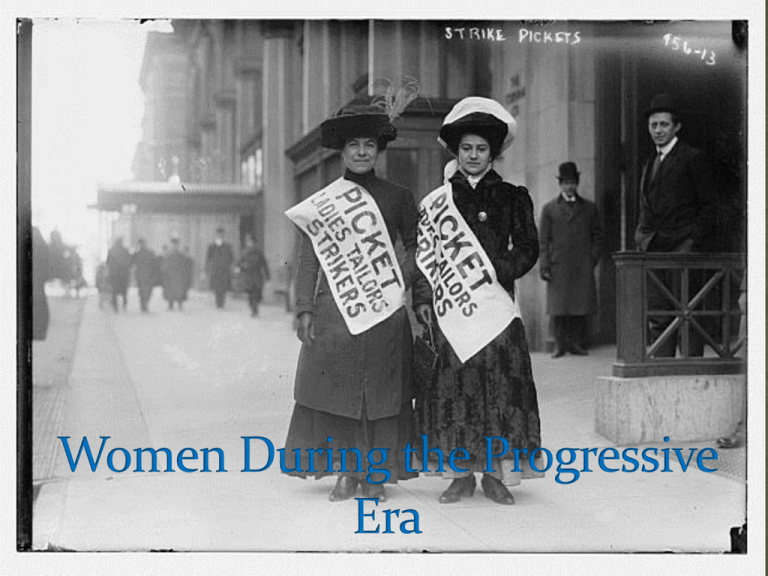
In the late 1800’s more women began to obtain higher education by attending college Most women who attended college were part of the middle or upper class However, after graduating many women still found themselves shut out of many high prestige careers Women worked as teachers, nurses, journalists, and in industry Women became some of the most important leaders of the Progressive Era Lillian Wald founded the Henry Street Settlement to tend to the needs of poor children in New York City Women were particularly active in the prohibition movement – called for a ban on making, selling, and distributing alcohol Groups like the Women’s Christian Temperance Union (WCTU) and leaders like Cary Nation (who went into saloons in Kansas with a hatchet and a bible) fought to eliminate alcohol in America Prohibitionists eventually won when the 18th Amendment was passed in 1919. However, it was so unpopular that the amendment was repealed in 1933 when the 21st Amendment was passed. African-American women also fought for civil rights Many AfricanAmerican women joined the National Association of Colored Women (NACW). The NACW campaigned against lynchings, segregation, and poverty. Women had been campaigning for suffrage since the 1848 Seneca Falls Convention Many women were especially angered that the 15th Amendment did not include women In 1869 Elizabeth Cady Stanton and Susan B. Anthony founded the National Woman Suffrage Association (NWSA). The NWSA pushed for a constitutional amendment to give women the right to vote. In 1872 many NWSA women supported Victoria Woodhull, the first female candidate for President In 1869 the Wyoming territory became the first to grant women suffrage Susan B. Anthony fought tirelessly for women’s suffrage In 1872 she led a small group of women in a protest. The women registered to vote and actually voted on Election day. Two weeks later she was arrested for unlawfully voting At her trial the judge refused to allow Anthony to testify on her own behalf In 1875 the Supreme Court ruled that women were citizens, but that citizenship did not grant the right to vote Many people were against women’s suffrage for several different reasons There were disagreements among women about how to obtain suffrage. One group wanted to work state by state, while others wanted immediate suffrage In 1913 Alice Paul and Lucy Burns broke away from the NWSA and founded the National Woman’s Party (NWP). This group focused on passage of a constitutional amendment to give women the right to vote In 1917 the NWP picketed the White House and chained themselves to the railings Iron Jawed Angels Many of the women were arrested. Some went on hunger strikes and there was much violence Iron Jawed Angels In 1917 the United States entered World War I. During the war women worked for the war effort which led to a weakening in the opposition to suffrage Under the leadership of Carrie Chapman Catt, the NWSA campaigned for women’s suffrage on the state and national level In 1920 the 19th Amendment was passed finally giving women the right to vote. Unfortunately Susan B. Anthony, Elizabeth Cady Stanton, and many of the other suffrage fighters were not alive to see passage of the 19th amendment.
